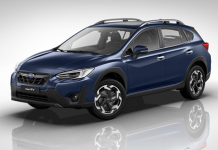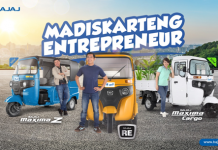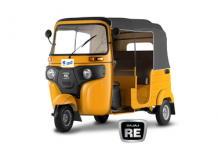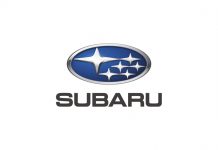 Driving a brand-new car can be one of the great experiences of life. Walking into the dealership business and being able to stay competitive, on the other hand, ranks up there with public speaking and visits to the dentist atop most people’s lists of anxiety-inducing experiences.
Driving a brand-new car can be one of the great experiences of life. Walking into the dealership business and being able to stay competitive, on the other hand, ranks up there with public speaking and visits to the dentist atop most people’s lists of anxiety-inducing experiences.
But it’s not really that scary if you’re prepared and knowledgeable. Especially when you grew up in the business as a second generation car salesman.
Then you can stride into that dealership informed, confident, and in charge of the whole process.
That’s Tobi Ang, vice president for operations of the Angcore Motor Group, one of Davao’s leading car dealerships.
We asked for a one-on-one with Tobi but since he is always in the move, we sent a ten questions for this interview via email and he returned it with 9 out of 10 answered. Whichever is that he did not answer is between the two of us and will be kept under the hood.
But suffice it to say, Tobi had more than given us a panoramic and microscopic view of the automotive business in Davao.
Here is how we picked the brain of this next generation Joe Girard, the man who sold 13,001 Chevys in 15 years.
1. When was Angcore established and who are the incorporators?
TA: Our family has been in the automotive industry for over 20 years, in its many forms. Those businesses have all been consolidated to what is now collectively called The Angcore Motor Group.
2. What paved the way (motivation) for its creation?
TA: I’ve always believed in creating a central vision, to help guide us in how we conduct business. So Angcore’s vision of “making life better”, is starting to emanate through all of our businesses.
3. How did the car brands evolve in the inventory of Angcore? Which brand came first and which are the latest?
TA: Through the years, we’ve had the privilege of handling many brands, and during the crises of the 80’s and the 90’s some of the distributors left the country or gave up the business, and we were forced to let go of those brands. Today, the Angcore group is built upon its 2 main brands, Kia & Mahindra, as well as its sister brand Chevrolet (AB&T).
4. How is the car industry market in Davao?
TA: Like the rest of the country, the automotive industry here in Davao has grown significantly in the past few years. We’re starting to be a significant market outside Metro Manila.
5. What are the primary considerations of Dabawenyos when buying vehicles?
TA: Like most markets, the concerns are standard – fuel efficiency, features, financing options, power, etc., but something I’ve been noticing more and more in recent years is quality of service. This is also why, The Angcore Group has centered its mission to providing the best ownership experience for our customers. We’ve made significant investments recently to ensure that this mission becomes a consistent reality.
6. What are the car financing offers of Angcore and who are your financing institution partners?
TA: Angcore works with most of the banks in the country, and we have financing programs that will fit almost any customer’s needs.
7. What after-sales support does Angcore offer to its clients?
TA: We are firm believers of following the periodic maintenance schedule. At Angcore we make sure we remind you to come back for regular service visits. We treat cars like people and like people, we believe the key to a healthy life is prevention rather than cure. However, in the event a cure is necessary, we also have industry leading warranty. So what we really try to provide is the best ownership experience, from buying your car all the way to trading it in to buy a new one.
8. What is the future of the car sales industry in Davao?
TA: I think the Davao car market is slowly starting to mature, and car sales will be more about customer service & relationships, rather than specifications & price. We’re not there yet, but that’s the direction we are headed.
9. Is Davao traffic getting worse because we have more cars today while we have the same roads?
TA: Yes we have more cars on the road today and yes we may not have enough roads, but I believe this government is doing something about it and we see a lot of spending on infrastructure. The problem with infrastructure spending is that it requires massive foresight. You’re never spending for today, and always for tomorrow. So sometimes we’re not in sync.
However, preventing or limiting car sales to prevent traffic is like preventing a child from growing just because her clothes don’t fit. Growth should never be limited. So yes, I don’t support the massive excise tax on the car sales.






